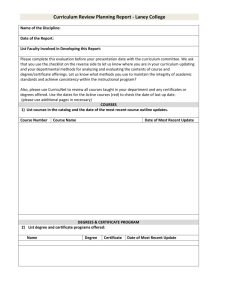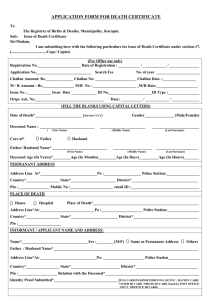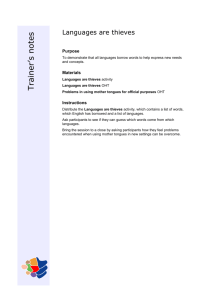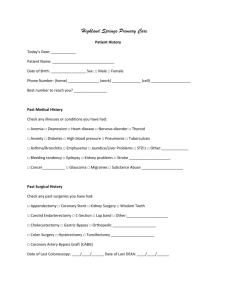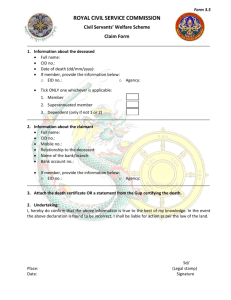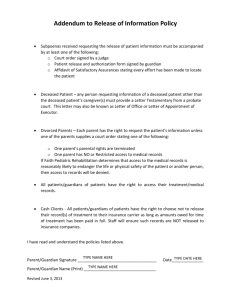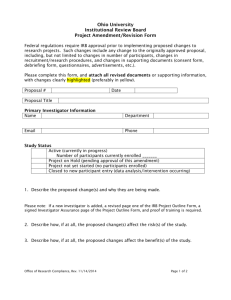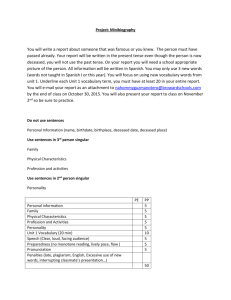OHIO HOUSE HEALTH & AGING COMMITTEE Senate Bill 61
advertisement
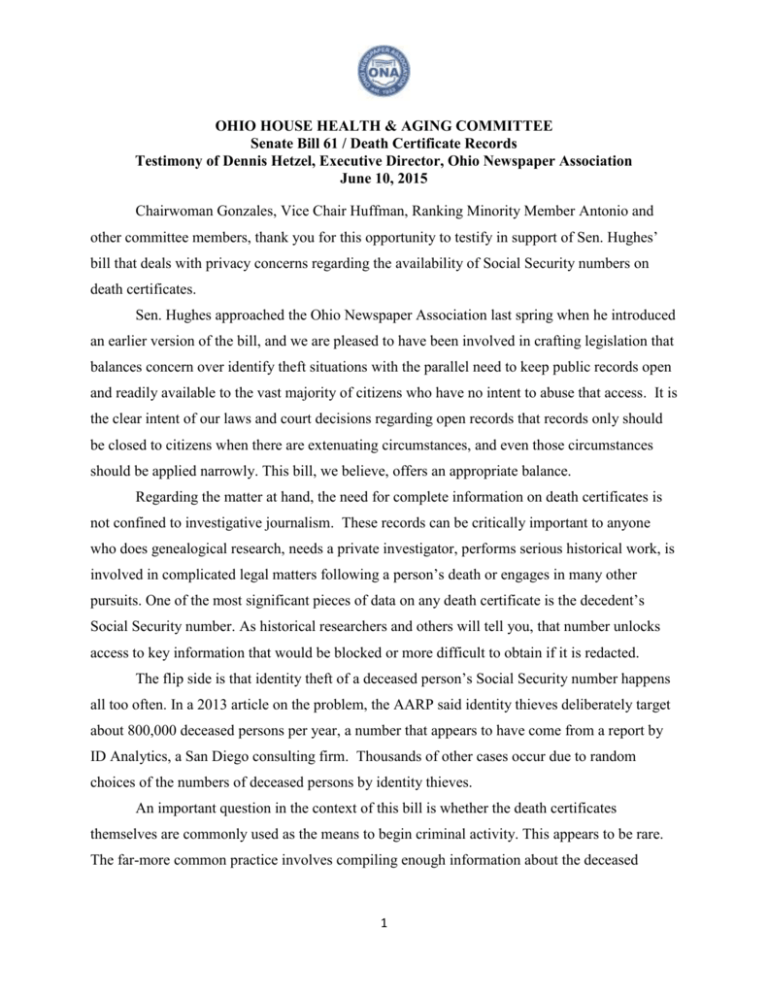
OHIO HOUSE HEALTH & AGING COMMITTEE Senate Bill 61 / Death Certificate Records Testimony of Dennis Hetzel, Executive Director, Ohio Newspaper Association June 10, 2015 Chairwoman Gonzales, Vice Chair Huffman, Ranking Minority Member Antonio and other committee members, thank you for this opportunity to testify in support of Sen. Hughes’ bill that deals with privacy concerns regarding the availability of Social Security numbers on death certificates. Sen. Hughes approached the Ohio Newspaper Association last spring when he introduced an earlier version of the bill, and we are pleased to have been involved in crafting legislation that balances concern over identify theft situations with the parallel need to keep public records open and readily available to the vast majority of citizens who have no intent to abuse that access. It is the clear intent of our laws and court decisions regarding open records that records only should be closed to citizens when there are extenuating circumstances, and even those circumstances should be applied narrowly. This bill, we believe, offers an appropriate balance. Regarding the matter at hand, the need for complete information on death certificates is not confined to investigative journalism. These records can be critically important to anyone who does genealogical research, needs a private investigator, performs serious historical work, is involved in complicated legal matters following a person’s death or engages in many other pursuits. One of the most significant pieces of data on any death certificate is the decedent’s Social Security number. As historical researchers and others will tell you, that number unlocks access to key information that would be blocked or more difficult to obtain if it is redacted. The flip side is that identity theft of a deceased person’s Social Security number happens all too often. In a 2013 article on the problem, the AARP said identity thieves deliberately target about 800,000 deceased persons per year, a number that appears to have come from a report by ID Analytics, a San Diego consulting firm. Thousands of other cases occur due to random choices of the numbers of deceased persons by identity thieves. An important question in the context of this bill is whether the death certificates themselves are commonly used as the means to begin criminal activity. This appears to be rare. The far-more common practice involves compiling enough information about the deceased 1 person’s identity from other sources to purchase the Social Security number on the Internet. One article also noted some of these incidents actually are triggered by other family members. It also is important to note, as the Social Security Administration itself states in the “frequently asked questions” portion of its website, that numbers of the deceased are available in the Social Security Death Index, via genealogy services and other outlets. Thieves really don’t need to go to the Courthouse to look up the certificates. In working with Sen. Hughes last spring, I asked a respected private investigator in the Columbus area about this subject. He said any risk of identity thieves using a death certificate for criminal intent should dissipate after a year or two. He added this, and I quote: “Social Security numbers can be crucial in trying to locate a person’s address history, relatives and associates …. A name and a date of birth often are not good enough.” The summary point is that redacting these numbers in perpetuity on one Ohio record would not do much to discourage criminals, but it would make research harder for everyone else. As is often the case with legislation that would restrict access to public records, the anecdotal possibilities of something bad happening involving that specific record have to be weighed against the presumption of openness that should attach to public records and the value of having this information available. SB 61 achieves this. The record would become presumptively open after five years, which should be more than enough time for any identity-theft potential related to usage of the death certificate to be difficult if not impossible. In the meantime, the Social Security number is redacted during that period from certified copies unless there is a specific request for that information from a specific list of parties with a clear, legitimate purpose. That includes spouses, funeral directors, government officials, those with private investigator licenses, executors of estates and media organizations with newsgathering purposes. Thank you for your consideration, and I would be happy to answer any questions that committee members may have. 2



